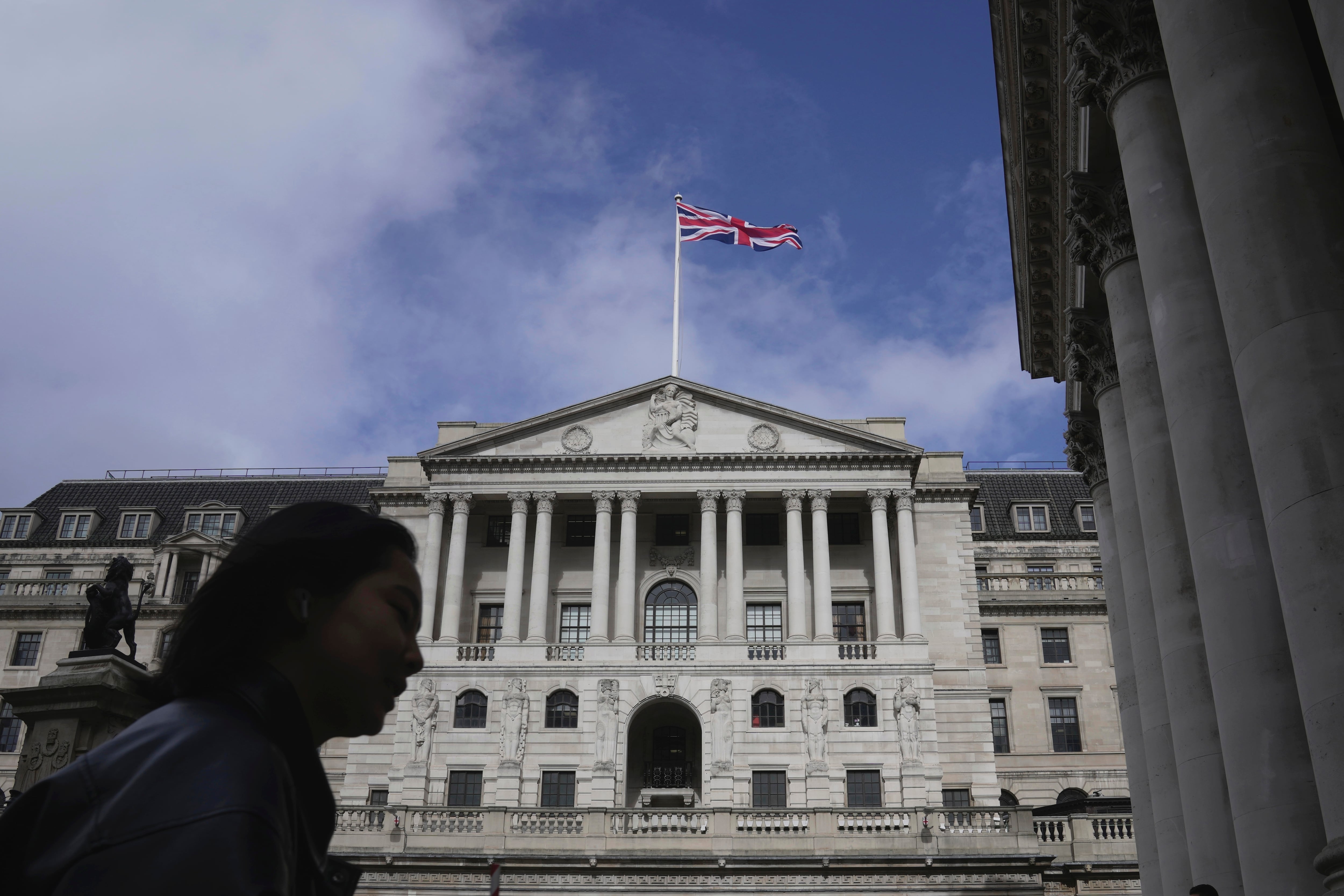LONDON (AP) — The Bank of England is facing a dilemma about whether to cut interest rates next month after official figures Wednesday showed inflation holding steady at its target against expectations of a modest decline, possibly as a result of Taylor Swift’s Eras Tour.
The Office for National Statistics said inflation, as measured by the consumer price index, remained at the bank's 2% target in the year to June. Most economists had predicted a decline to 1.9% as lower domestic energy bills filter through.
The statistics agency said the largest upward contribution to the annualized inflation rate came from restaurants and hotels, with some economists attributing the increases to Taylor Swift's tour of the U.K. Swift performed to hundreds of thousands during June in Edinburgh, Liverpool, Cardiff and London and is back in London, so there could be another potential spike then.
"While difficult to fully untangle, it’s certainly very possible that some Taylor Swift effects were at play here and could very well reverse out next month," said Sanjay Raja, chief U.K. economist at Deutsche Bank.
Following the release of the figures, financial markets think it's now less likely that there will be a majority in the bank's Monetary Policy Committee in favor of cutting the main interest rate from 5.25% at its next meeting on Aug. 1.
Some on the panel have voiced concerns in recent months about the scale of price rises in the crucial services sector, which accounts for around 80% of the British economy, as well as the pace of wage increases, which raise the risks of an inflation rebound if interest rates are cut too soon. Many economists are factoring a steady rise in the headline inflation rate over the coming months.
“For the majority of the MPC, today’s inflation report won’t be as encouraging as it may have anticipated,” said Deutsche Bank's Raja. “With live music and accommodation prices rising at such speed, the MPC could potentially be minded to look past some of the upside in services inflation. To be sure, we now think that an August rate cut is finely balanced.”
The last time inflation was at 2% was in July 2021 before prices started to shoot up, first as a result of supply chain issues during the coronavirus pandemic and then because of Russia’s invasion of Ukraine, which pushed up energy costs.
The Bank of England, like the U.S. Fed and other central banks, raised interest rates aggressively in late 2021 from near zero to counter the rapid increase in inflation, which hit a peak of above 11% in late 2022.
Higher interest rates — which cool the economy by making it more expensive to borrow — have helped ease inflation, but they’ve also weighed on the British economy, which has barely grown since the pandemic rebound.
Prime Minister Keir Starmer has stressed that upping the U.K.’s economic growth will be the driving mission of his Labour government. Later Wednesday, his government is to announce its plans for the coming year. Starmer said the measures announced in the King’s Speech to Parliament would “take the brakes off Britain” and “create wealth for people up and down the country” by spurring economic growth.













